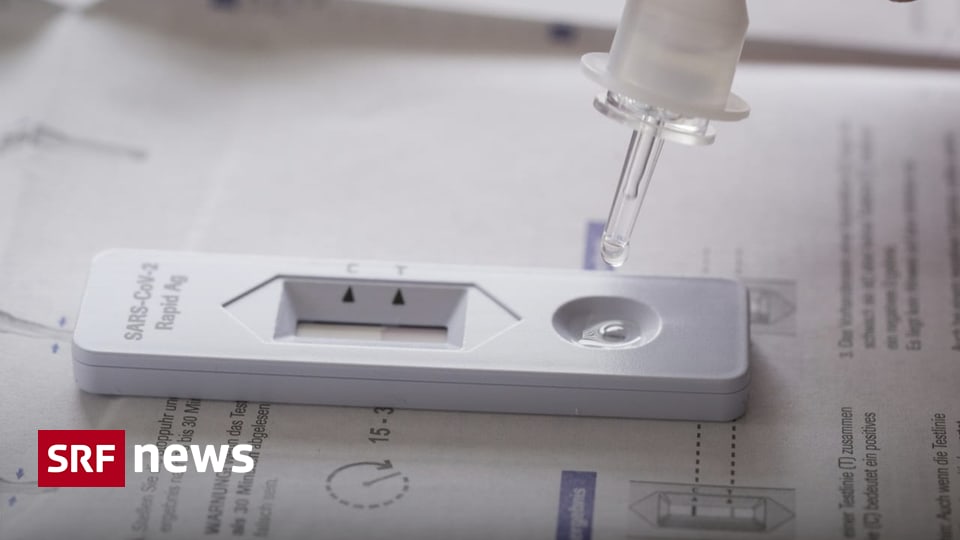
- According to the Federal Office of Public Health (BAG), the number of laboratory-confirmed Covid-19 cases has increased by about 50 percent in the past four weeks.
- As Tanja Stadler, chair of the Covid-19 Scientific Advisory Board, says, wastewater data also show an increase in infections.
- The main reasons are new variants of the corona virus and a decrease in immunity.
At the peak of the Corona pandemic, testing centers were ubiquitous. Today, people who are sick can self-examine using a rapid test and, if necessary, voluntarily stay at home. Official tests are now rare, but scientists and officials measure infection rates, for example in sewage.
“Circulation of Sars-Cov-2 has been increasing slightly again for about three months. “But this is still low compared to other wave peaks we’ve had in the past,” says ETH Professor Tanja Stadler.
Laboratory-confirmed cases are also on the rise
The Central Office of Public Health (BAG) has been increasing the number of laboratory-confirmed Covid-19 cases. Hospitals still have to report Covid cases to the central government. According to BAG, these have increased by about 50 percent in the last four weeks.
There were 369 laboratory-confirmed cases of Covid-19 in the first week of July. That is 4.17 cases per 100,000 population. By comparison: In the full week from July last year there were 134 cases, or 1.51 cases per 100,000 people.
According to the BAG, there are two main reasons for the increase in infections. “Immunity acquired through previous infections declines over time. The second reason is new virus types KP.2/KP.3,” says the request.
Somewhat more infectious types
Stadler says the coronavirus is constantly changing. “In some cases there are so-called mutations. The virus changes easily and can infect us again even if we have been infected. Now there are subtypes of the Omicron virus variant that make it easier to infect people. “This is how it spreads in Switzerland and in other countries,” says Stadler. Meanwhile, it is clear Existing: Acquired immunity so far provides good protection against more severe cases even with these new variants.
According to the BAG, the new variants show no more severe disease progression than previous Omicron variants. No new measures are planned to prevent the spread of the virus.
Old tests also detect new types
Stadler says anyone who still has old Covid tests at home can use them to test for new virus strains. “Tests are generally very broad.” However, the tests only have a certain level of accuracy and can give you a positive but negative result.
For those at particular risk, early testing makes sense, Stadler says. Other groups should stay home if they have symptoms or wear a mask when going out. BAG stands for it A website with general behavioral recommendations related to Covid-19. These include, among others: regular ventilation, keeping your distance, wearing a mask if you have cold symptoms and avoiding contact with people who are especially at risk.

“Wannabe pop culture fanatic. Zombie advocate. Entrepreneur. Internet evangelist. Alcohol fanatic. Typical travel buff.”





More Stories
Choosing the Right Quality Management Software for Your Industry
If guests bring items: Can shower gel be packed from the hotel?
This diet can prevent death from dementia